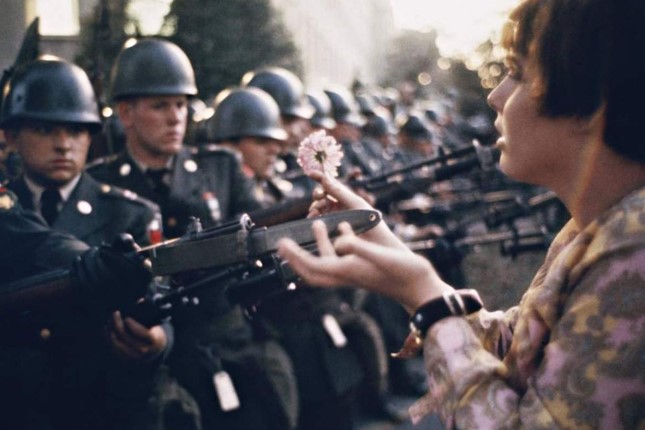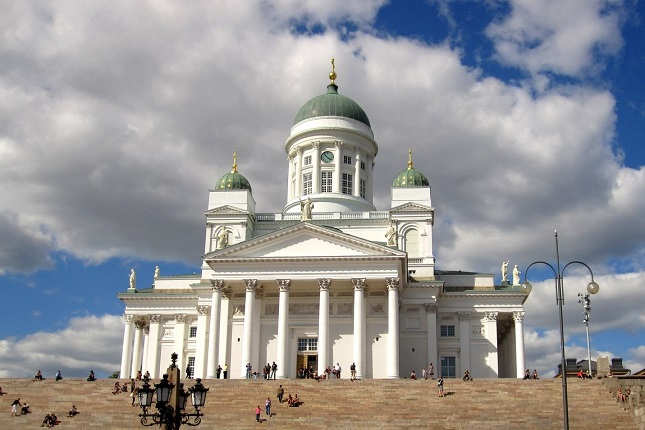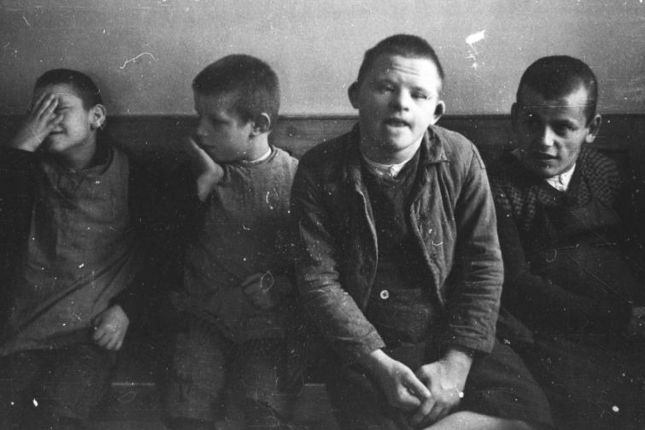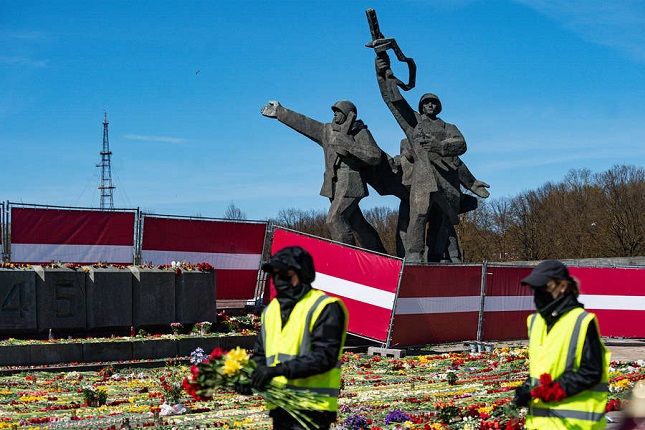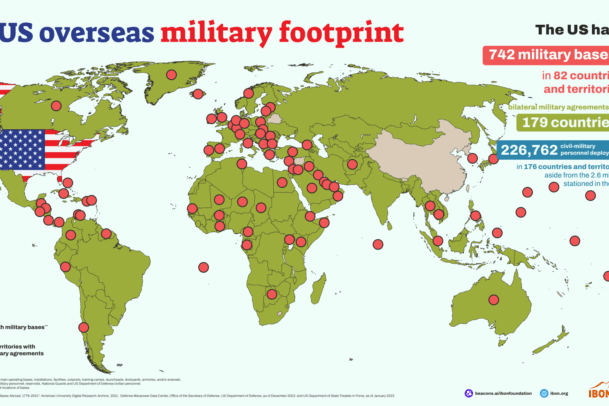As the war between Russia and Ukraine is dangerously escalating, more and more concerns appear that the US and its European allies’ massive military support of the latter has non-zero probability of triggering the Third World War. And if it started, it would definitely also become the last war, given the massive nuclear arsenals in posession of both NATO and Russia, and very few chances that humanity will be able to survive it.
In this context, discussions on the ideology of pacifism, its practical implementation and limitations are becoming more important than just intellectual excercises or breathtaking journeys into the history of ideas.So, what is pacifism about, and what do we know about it?
In fact, people have been facing wars throughout the entire social history. Until recently, humanity, in general, was apologetic about waging wars, seeing them both as a legitimate means to achieve political and economic goals, such as the acquisition of lands and wealth, and realize specific moral values of heroism.
The ancient greek philosopher Heraclitus famously said that “war is father of all, and king of all. He renders some gods, others men; he makes some slaves, others free”. In other words, war was perceived not just as an unavoidable part of existence but actually as its source and foundation.
In “Bhagavadgita” Hindu god Krishna had nothing to do with pacifism when he taught his disciple Arjuna to perform his moral duty and fight against his relatives on the battlefield of Kurukshetra. The approaches to war that we now call pacifist have always been somewhat of an exception in the intellectual history of humanity.
The word "pacifism" appeared relatively late, it was coined by the French peace campaigner Émile Arnaud and adopted by other peace activists at the tenth Universal Peace Congress in Glasgow in 1901. But of course, despite this fact, pacifist ideas have a long history.
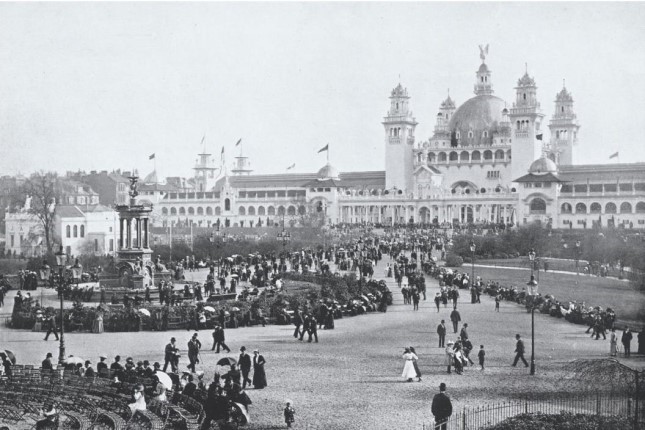
Glasgow 1901-s.
The earliest consistent critic of war and proponent of pacifism in the history of human thought was the Chinese philosopher Mozi (Mo-tzu) or “Master Mo” (5th century B.C.E.), who is also remembered for being the first major intellectual rival to Confucius and his followers. Philosophers offered a doctrine that affirmed the existence of a universal divine law of love while war and all kinds of atrocities were violating the justice that the divine Heaven laid down.
In a nutshell, Mozi anticipated all major lines of argumentation of future pacifists against the war. According to him, war brings destruction, uncultivated lands, and many deaths but does not give wealth, prosperity and a good life. And even a victorious war leads to the weakening of the state, urging neighboring states to build alliances against us. While these arguments are pragmatic, Mozi also has a moral idea based on the contradiction of war: we curse the murder of one person and call it a crime, condemning the criminal, but when faced with massacres, we call this a war and glorify military prowess. Such pacifist intellectuals as Leo Tolstoy and Albert Schweitzer discovered Mozi as the “father” and forerunner of modern pacifism, thus tracing its intellectual history to 25 centuries.
Often roots of pacifist thoughts are found in various religious traditions. Many believe that in his Sermon on the Mount, Jesus was asserting nothing else but the ethics of pacifism when he stated that one should "not resist an evildoer" and taught that “if anyone strikes you on the right cheek, turn the other also”.
Similarly, Buddhism and Hinduism operate with the notion of ahimsa, a principle of non-violence very close to pacifism, which in the 20th century transformed into the practice of steadfast nonviolent opposition called “satyagraha” and played a crucial role in the struggle for independence of India.
However, despite some pacifist religious ideas, countries in different parts of the world continuously waged wars against each other throughout their history. And religion was more often an important driving force of such wars rather than a constraint.
A remarkable contribution to pacifist theory was made by the 18th – century German philosopher Immanuel Kant, who proposed an idea of “perpetual peace”, maintained by the community of states with the republican form of government – a prototype of the United Nations.
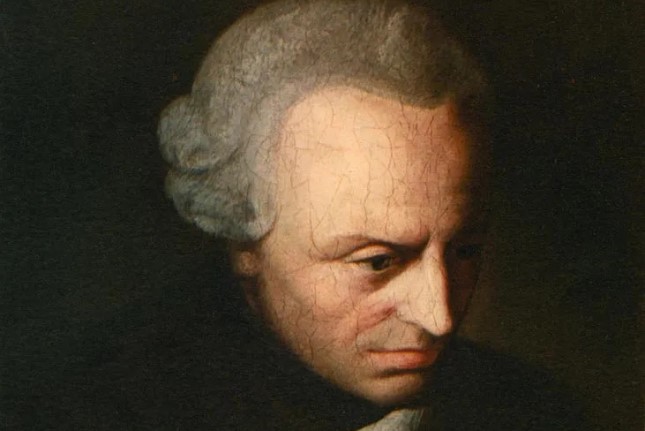
Immanuel Kant - German philosopher and one of the central thinkers of the Enlightenment.
Two basic approaches can be distinguished, if we address modern philosophical interpretations of pacifism. One is consequentialism, an ethical doctrine that proposes to evaluate the consequences of our actions and, based on this assessment, conclude how moral or immoral our actions are. For consequentialist pacifism, war is unacceptable because it is always harmful and leads to horrors and negative consequences, which do not outweigh all the possible benefits of war.
The second approach is deontology, and it speaks of a certain obligation to comply with the requirements of various moral laws – we have a moral duty to follow some moral principles that we must always be guided by in our activities. For example, the commandment “Thou shalt not kill” can act as a moral rule.
Nowadays, everyone seems to be a pacifist, at least in words. And modern wars seem to be waged by committed pacifists only, engaged in an ever-going bloody fight for peace.
Ministries of defence are much more common than ministries of war, military doctrines are replete with pacifist statements, and the whole system of international relations with the UN in its centre focuses on maintaining peace or at least limiting wars. Pacifist discourse, however, didn’t make wars less often.
Even now when they are started, they are either proclaimed defensive in their essense (prevention of inevitable attack in the future) or need to be justified with undisputable moral grounds such as protection of human rights and fight against dictatorships.
“War is peace”, as George Orwell phrased it in his novel “1984”. Also need not be forgotten: “Freedom is slavery. Ignorance is strength”.
